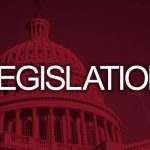The Centers for Medicare and Medicaid Services has announced amended terms for payment issued under the Accelerated and Advance Payment Program, as required by recent action by President Trump and Congress.
This Medicare loan program allows CMS to make advance payments to providers, which are typically used in emergency situations. Under the Continuing Appropriations Act 2021 and Other Extensions Act, repayment will now begin one year from the issuance date of each provider’s or supplier’s accelerated or advance payment.
CMS issued $106 billion in payments to healthcare providers and suppliers in order to alleviate the financial burden providers faced while experiencing cash flow issues in the early stages of the COVID-19 pandemic.
WHAT’S THE IMPACT?
Want to publish your own articles on DistilINFO Publications?
Send us an email, we will get in touch with you.
CMS expanded the AAP Program on March 28 and gave these loans to providers and suppliers in order to combat the financial burden of the pandemic. CMS successfully paid more than 22,000 Part A providers, totaling more than $98 billion in accelerated payments. This included payments to Part A providers for Part B items and services they furnished.
On top of that, more than 28,000 Part B suppliers, including doctors, non-physician practitioners and Durable Medical Equipment suppliers, received advance payments totaling more than $8.5 billion.
Providers were required to make payments starting in August of this year, but with the new action repayment will be delayed until one year after payment was issued. After that first year, Medicare will automatically recoup 25% of Medicare payments otherwise owed to the provider or supplier for 11 months.
At the end of the 11-month period, recoupment will increase to 50% for another six months. If the provider or supplier is unable to repay the total amount of the AAP during this time – a total of 29 months – CMS will issue letters requiring repayment of any outstanding balance, subject to an interest rate of 4%.
The letter also provides guidance on how to request an Extended Repayment Schedule for providers and suppliers who are experiencing financial hardships. An ERS is a debt installment payment plan that allows a provider or supplier to pay debts over the course of three years, or up to five years in the case of extreme hardship.
Providers and suppliers are encouraged to contact their Medicare Administrative Contractor for information on how to request an ERS.
To allow even more flexibility in paying back the loans, the $175 billion issued in Provider Relief funds can be used towards repayment of these Medicare loans. CMS will be communicating with each provider and supplier in the coming weeks as to the repayment terms and amounts owed as applicable for any accelerated or advance payment issued.
THE LARGER TREND
An accelerated/advance payment is a payment intended to provide necessary funds when there is a disruption in claims submission and/or claims processing. These expedited payments can also be offered in circumstances such as national emergencies, or natural disasters to accelerate cash flow to healthcare providers and suppliers.
An extension of the deadline for hospitals to repay the AAP Programs loans was included in a bipartisan continuing resolution in September to extend federal government funding through December 11. In October, hospitals were given an extension to repay Medicare accelerated and advance payments.
Hospitals received an extension from 120 days of the loan to 29 months from the date of the first payment. During the first 11 months in which any such payment offsets are made, 25% of the amount is due; during the succeeding 6 months, 50% of the amount is due; and hospitals are being given 29 months from the date of the first payment before requiring that the outstanding balance be paid in full.
In May, Chairmen Neal and Pallone raised concerns over CMS’s methodology for distributing COVID-19 loans from both the AAP Program and the Provider Relief Fund, and called on both HHS and CMS to provide Congress with more transparency.
Congress appropriated $100 billion in the CARES Act and $75 billion through the Paycheck Protection Program and Health Care Enhancement Act for healthcare providers. These payments do not need to be repaid.
Source: Healthcare Financenews







